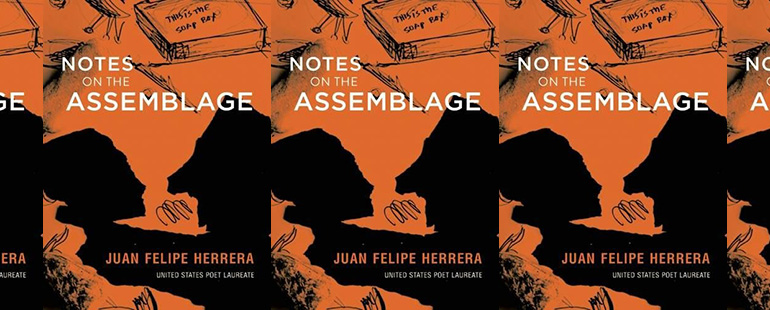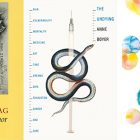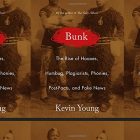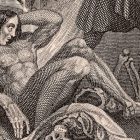Juan Felipe Herrera’s Poetry for the People

Juan Felipe Herrera, the first Latino US Poet Laureate, closes his 2015 collection, Notes on the Assemblage, with a piece titled “Poem by Poem,” which goes: “you have a poem to offer / it is made of action – you must / search for it run.” Many of his poems are dedicated to those who have died tragically, victims of violence. It is easy to despair, to feel paralyzed in how to respond to such a thing, but Herrera has made the choice to try to engage with these acts of violence, and to act with love for the lives lost. He knows that looking away from the violence will not help, but neither will seeing only the violence.
One of the first poems in Notes of the Assemblage, “Ayotzinapa,” is named for the student protesters from Ayotzinapa who went “missing after police in the city of Iguala, Guerrero, Mexico opened fire on their buses and kidnapped a group of 43.” In the poem, Herrera adopts the point of view of the students, using the first-person plural, giving them full power. The poem starts off giving some answers to the reader, to the questions they may have about what the students were doing, how that final day before they went missing may have felt. Herrera spares no detail of the violence—“burned us they dismembered us in trash bags,” he writes—but he doesn’t dwell on death. The point of “Ayotzinapa” is to continue the students’ lives, not just focus on their violent end.
“Ayotzinapa” mentions what they were protesting for—“funds”—and discusses how “we make way through the massacre here from / where we were born and from where we died toward all the cities / in the world toward all the students and teachers in the world / demonstrating on all the streets sprung open.” These lines show how the student protesters keep living on in Herrera’s poem. The tense stays present past the point of their deaths; the poem continues. For Herrera the students don’t survive just in this poem—they survive in our collective conscious, in us, in the people. They survive in those who demonstrate, who protest, for a better world. We have the possibility and responsibility of letting them live through us, for they are us and we are them.
In 2016, following the mass shooting at UCLA (where Herrera got his bachelor’s degree in 1972), Herrera wrote the poem, “Where We Find Ourselves.” The poem starts off with Herrera describing an active shooter situation, how the massacre is “small,” due to its abundance, due to how the world keeps on moving, as if so many people’s worlds don’t end in this tragic and terrible way. He talks about plastic chairs, angled desks, bringing up the images of youth, of childhood, of learning and love, and how they are our only defenses, physically flimsy, but intellectually our foundation, with which to save ourselves.
The image that Herrera leaves us with in this poem is that of everyone in the rooms, trapped, hoping to be the leaves outside, the leaves that survive on a tree that has been shot up and has had so much destroyed. We are a part of a bigger body, this image makes clear, and that body is undeniably sick. It can feel irrevocably sick. But instead, Herrera ends with hope, with the thought that life will carry on: “with all life at / the core of all things / & we are – / despite / this trembling world,” he writes. For we will carry on. And with us, with our poems and our words and our thoughts, so can the people we’ve lost here.
After the Pulse nightclub shooting in Orlando in 2015, Herrera wrote the poem “i Will Lov U 4Ever, Orlando.” Early in this poem, Herrera writes that “‘It is heroic to save others lives’ / (O yes it is – if you can love) / through the dark.” The lines ring true, remind us of something said that night, of something said so often after these events—that good men can save lives by killing bad men with guns, the deaths that happen before the saving being treated like a built-in cost to living in our society. The poem captures the horror of the moment, Herrera writing that “it could have lasted a whole song,” a refrain that gets repeated over and over again, echoing to exacerbate the nightmare quality of that night.
Herrera also writes that “49 are – no longer / they have multiplied into our voices your voices / if you let them burn & unfold inside of U — they make us // speak somehow.” Herrera returns here to a regular thesis in his work, about how his poetry speaks to his thoughts, but also for those who have fallen, who have been violently ended, who can no longer speak for themselves. The poems are not where their words end, for those words, those thoughts, those continuing to live on through the work also live on through all of us who knew them, who know the poem, who know the stories told that go beyond the grisly deaths.
Herrera acknowledges the pain that we are doing to each other, to ourselves, a pain that can’t be kept in a vacuum. He conveys this as he writes how the wind is “shredded,” how the heat is “scarred,” how what was once there is “no longer there.” How the only thing that seems to be left after these losses is the “ache.” How the ache doesn’t stop at the dead, or those present for the shooting, or the dead’s loved ones. How we’re literally killing our world.
The trauma and tragedy of the Pulse nightclub shooting sticks with Herrera, sticks with the speaker of the poem; even after writing a little bit about the dance club, they go back to the guns, talking about the gun that was put through the bathroom stall, how guns are not just breaking through physical barriers, not just breaking through doors, not just bullets tearing lives and loves apart, but how they are also becoming a part of our identity. We are a country that can’t seem to separate itself from its guns, a people that seem to crave guns, individuals who have to be afraid of guns every single day.
Near the end of the poem, Herrera writes, “loving life, is that a crime (i ask you from here).” Love of people is what Herrera writes about, what he thinks will keep people alive, in some form or fashion on this earth, so that we as a people can carry on, past our weaknesses, past what we’ve done to our earth, our home. This is why he ends the poem with a tough image, but tries to force some love in it: “who is going to kiss kiss her shrapnel wounds sharpening / & catch her body twist & face down / at the Pulse,” he writes. Herrera is trying to hang onto the dance here, let the song play forever, and not be interrupted by the bullets, by the hate.
Herrera doesn’t write around tragedies, doesn’t avoid the pain, the difficulty that comes from writing and living and breathing in those experiences. But Herrera also doesn’t dwell. As he writes in “Poem by Poem,” poetry needs to be acted on. It is alive in the world. And Herrera writes because all these people we’ve lost are a part of us, our community, our world, and by writing these poems, we honor them, we let them live, for a whole poem.



